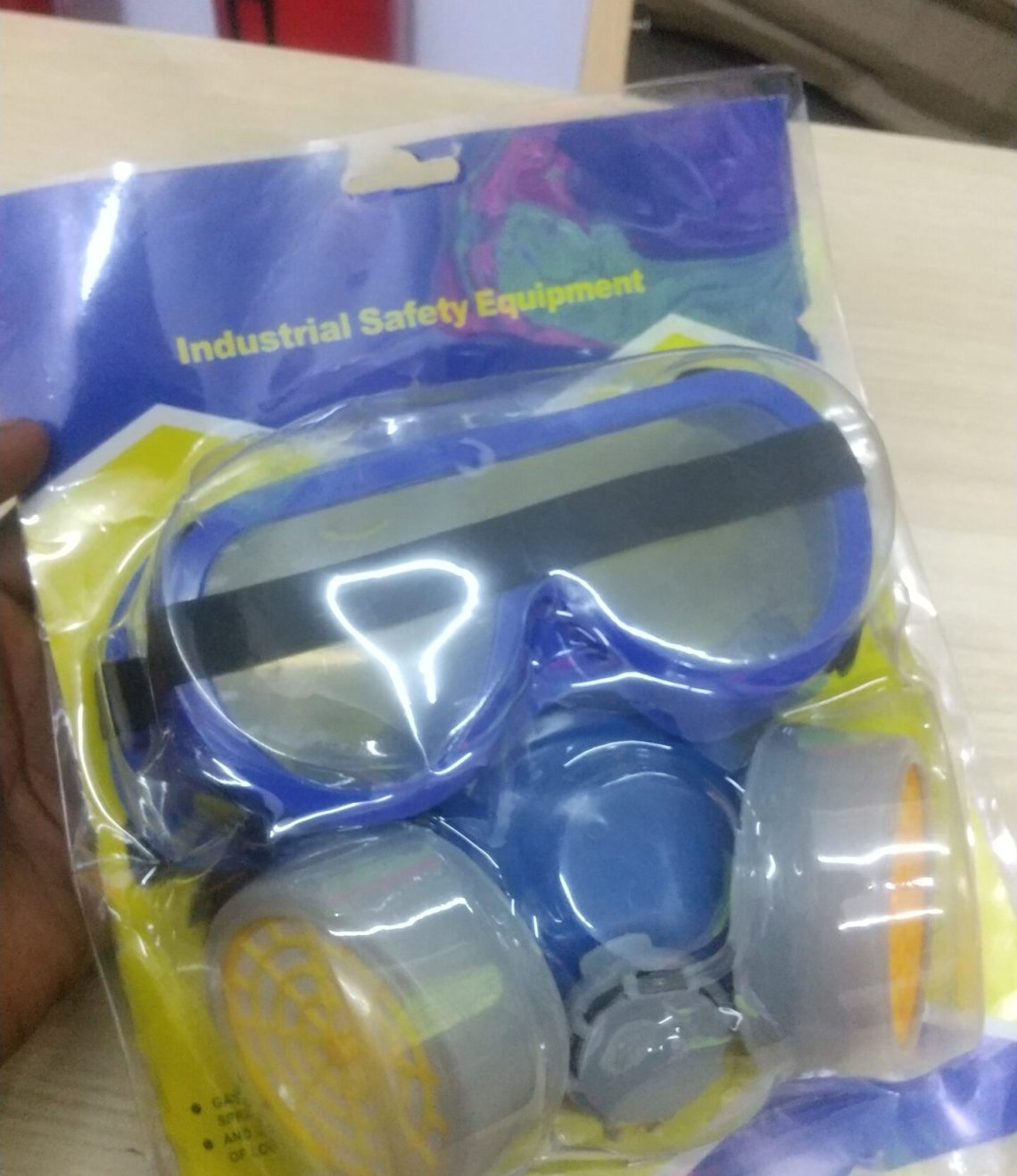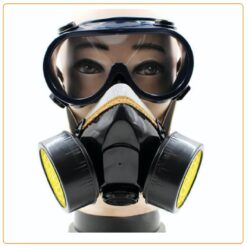Express Deliveries countrywide.
industrial mask

This Industrial masks play a critical role in protecting workers from airborne hazards in industrial settings. It is important to select the appropriate mask based on the specific hazards, conduct fit testing, and provide proper training on mask usage and maintenance to ensure optimal protection and safety.
Quantity:
Continue Shopping
Category: Mask
Description
An industrial mask, also known as a respiratory protective mask or a respirator, is a type of personal protective equipment (PPE) designed to protect the wearer from inhaling hazardous substances, airborne particles, or pollutants present in industrial environments. Industrial masks are used in a wide range of industries, including manufacturing, construction, mining, chemical handling, and healthcare. Here are some key features and considerations of an industrial mask:
Filtration Capability: Industrial masks are designed to filter out airborne contaminants, such as dust, fumes, gases, vapors, or biological particles. The level of filtration and the specific hazards the mask can protect against depend on the type of mask and the filters or cartridges used.
Types of Industrial Masks:
Disposable Masks: Disposable masks are typically made of non-woven synthetic materials and are designed for single-use. They are lightweight and easy to wear, offering basic protection against larger particles and some non-toxic airborne substances. Examples include N95 respirators, which filter out at least 95% of airborne particles.
Half-Face Masks: Half-face masks cover the nose and mouth and are typically made of elastomeric materials. They use replaceable filters or cartridges that can provide protection against specific types of hazards, such as particulates, gases, or vapors. These masks offer a higher level of protection than disposable masks and are commonly used in industries where moderate to high respiratory protection is required.
Full-Face Masks: Full-face masks cover the entire face, including the eyes, nose, and mouth. They provide respiratory protection as well as eye protection. Full-face masks typically have a transparent visor that allows for a wide field of vision. They are used in more hazardous environments where protection against gases, vapors, and particulates is necessary.
Filter and Cartridge Systems: Industrial masks often use replaceable filters or cartridges that capture specific types of contaminants. Filters are designed to remove particulate matter, while cartridges can absorb or neutralize gases, vapors, or specific chemical substances. The type and combination of filters or cartridges depend on the specific hazards present in the environment.
Fit and Seal: Proper fit and a secure seal are essential for the effectiveness of an industrial mask. Masks should fit snugly against the face to minimize leakage and ensure that air is properly filtered. Adjustable straps or harnesses are used to achieve a comfortable and secure fit.
Breathing Resistance: Industrial masks should allow for easy breathing while maintaining an effective seal. They are designed to balance breathability and filtration efficiency to minimize discomfort and fatigue during prolonged use.
Maintenance and Care: Industrial masks require regular maintenance, including inspection, cleaning, and replacement of filters or cartridges according to the manufacturer’s instructions. Proper storage when not in use is also necessary to maintain the integrity and effectiveness of the mask.
Compliance and Certification: Industrial masks should comply with relevant safety standards and regulations specific to the industry or region. Examples of standards include those set by the National Institute for Occupational Safety and Health (NIOSH) or the European Union’s EN standards. Certification marks and labeling on the mask indicate compliance with these standards.
Industrial masks play a critical role in protecting workers from airborne hazards in industrial settings. It is important to select the appropriate mask based on the specific hazards, conduct fit testing, and provide proper training on mask usage and maintenance to ensure optimal protection and safety.


